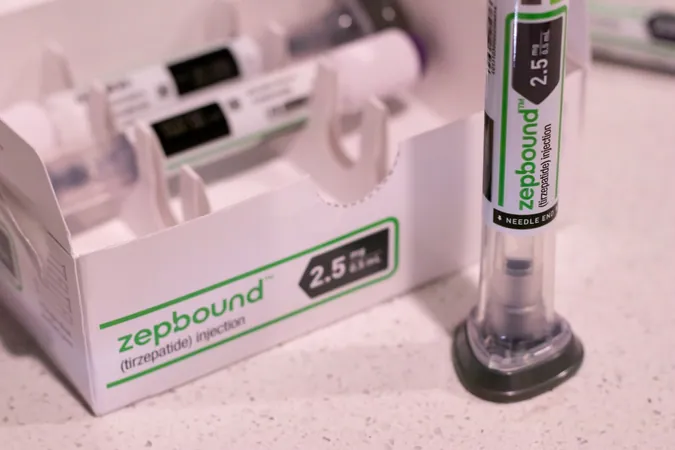
Revolutionary Approval: Zepbound Emerges as the First FDA-Approved Treatment for Sleep Apnea!
2024-12-23
Author: Ming
Groundbreaking Development
In a groundbreaking development for those suffering from sleep apnea, the Food and Drug Administration (FDA) has expanded the approval of Eli Lilly’s weight loss drug, Zepbound, to now include treatment for moderate to severe obstructive sleep apnea (OSA) in adults with obesity. This significant approval marks a pivotal moment in the management of a condition that afflicts approximately 12% of Americans.
Understanding Sleep Apnea
Sleep apnea occurs when an individual experiences repeated interruptions in breathing during sleep, leading to a range of disruptions that can severely impact quality of life. These interruptions trigger the brain to alert the body to resume breathing, resulting in a cycle of disturbed sleep. Obstructive sleep apnea, the most prevalent type, occurs due to physical blockages of the airway, often exacerbated by obesity.
Zepbound's Efficacy
Zepbound, which contains the active ingredient tirzepatide, has shown remarkable efficacy in weight management, allowing participants in clinical trials to shed between 18% and 20% of their body weight. This weight loss is crucial, as obesity is a predominant risk factor for OSA. Notably, in the two extensive clinical trials that led to this breakthrough approval, tirzepatide not only helped patients lose significant weight but also reduced the frequency of apnea episodes by as much as two-thirds. After one year of treatment, nearly 50% of participants were completely free of apnea symptoms.
Expert Insights
Sally Seymour, director of the Division of Pulmonology, Allergy, and Critical Care in the FDA’s Center for Drug Evaluation and Research, stated, 'Today’s approval marks the first drug treatment option for certain patients with obstructive sleep apnea. This is a major step forward for patients with obstructive sleep apnea.'
Comparison to Current Treatments
Although current treatments, such as Continuous Positive Airway Pressure (CPAP) machines, remain gold standards, they require nightly use, which some patients may find challenging. In contrast, the weekly injection of Zepbound offers a potentially more manageable alternative. Additionally, clinical trials revealed that patients using both Zepbound and CPAP experienced even greater improvements, underscoring the effectiveness of combination therapy.
Considerations for Potential Users
While Zepbound represents a leap forward, prospective users should be aware of potential side effects, such as gastrointestinal issues including nausea and diarrhea. Furthermore, the drug comes with a hefty price tag, often exceeding $1,000 per month. However, with the FDA's recent approval, more patients may find easier access to insurance coverage for Zepbound, marking a new era in the treatment of sleep apnea.
Conclusion
As we observe the medical landscape evolve, the expanded approval of Zepbound not only presents a powerful new weapon against sleep apnea but also reflects a growing understanding of the connections between obesity and sleep health. This revolutionary step may provide hope and relief for countless Americans seeking restful nights and improved health.





 Brasil (PT)
Brasil (PT)
 Canada (EN)
Canada (EN)
 Chile (ES)
Chile (ES)
 España (ES)
España (ES)
 France (FR)
France (FR)
 Hong Kong (EN)
Hong Kong (EN)
 Italia (IT)
Italia (IT)
 日本 (JA)
日本 (JA)
 Magyarország (HU)
Magyarország (HU)
 Norge (NO)
Norge (NO)
 Polska (PL)
Polska (PL)
 Schweiz (DE)
Schweiz (DE)
 Singapore (EN)
Singapore (EN)
 Sverige (SV)
Sverige (SV)
 Suomi (FI)
Suomi (FI)
 Türkiye (TR)
Türkiye (TR)